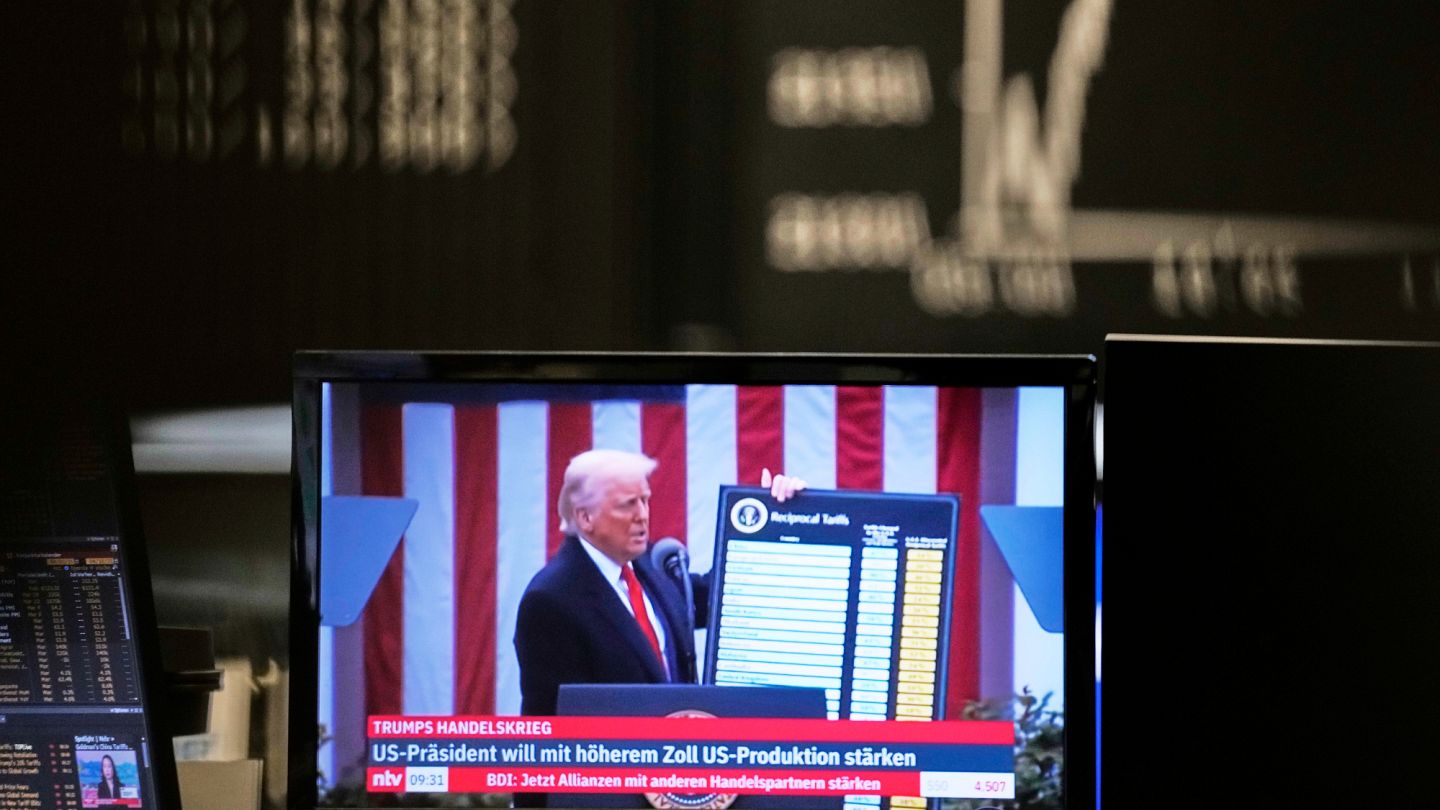European stock markets rose following Trump's exemption from customs duties on electronic products.
The euro has risen further against the US dollar after the White House exempted electronic products from mutual tariffs, and European stock markets are preparing to open higher. However, President Trump and his team emphasized that this exemption is temporary.
Following the White House's exemption of electronic products from mutual tariffs, European stock markets are preparing to rise, while the euro gained value against the US dollar. However, President Donald Trump and his administration suggested that tariffs would resume following the "National Security Tariff Investigations," implying that the exemption could be short-lived, thus dragging the already volatile trade environment into further uncertainty. Despite the announcement from US Customs and Border Protection on Friday that electronic devices, including smartphones, computers, and other components, would be exempt from tariffs, Trump insisted in a statement on Truth Social on Sunday that no tariff exemptions were granted, stating that a 145% tariff is applied to imports from China and a 10% tariff on imports from other countries. The White House confirmed these exemptions on Saturday. The Chinese Ministry of Commerce reacted to the US decision on electronic products, describing this step as a "small step" towards correcting the US's unilateral imposition of mutual tariffs. The spokesperson said: "We call on the US side to listen to the rational voices of the international community and various local sectors, to take major steps to correct their mistakes, to completely abandon the erroneous 'mutual tariff' practice, and to return to the right path of resolving differences through equal dialogue and mutual respect." Trump, stating that "NOBODY is 'getting off easy' due to UNFAIR Trade Balances, especially China, which treats us the worst by far!" mentioned on Truth Social later that day that "there was no 'exception' to the tariff announced on Friday." The President confirmed that as part of the upcoming National Security Tariff Investigations, they are "taking a look at semiconductors and the ENTIRE ELECTRONIC SUPPLY CHAIN," confirming that electronic products will be subject to a 20% Fentanyl Tariff, stating: "They are simply moving to a different tariff 'bucket.' Fake News knows this but refuses to report it." US Secretary of Commerce Howard Lutnick also confirmed in an early Sunday interview with ABC News that the exemptions are "not permanent" and that new tariffs are "likely to come within a month or two." With heightened sensitivity, European markets are set to open higher. European markets are preparing to open higher despite Trump's implication that tariffs could be reversed in the near future. As of 06:00 GMT, the Euro Stoxx 50 was up 2.5%, Germany's DAX was up 2.28%, and the UK's FTSE 100 was up 2.01%, while stock futures generally performed positively. With the continued weakness of the dollar due to increasing economic uncertainty, the euro also rose against the US dollar. The EUR/USD pair climbed above 1.04 before slightly retreating at the start of the Asian session. US stock futures rose in early Monday trading after weekend political developments. The technology-heavy Nasdaq Composite was up 1.3%, the S&P 500 was up 0.85%, and the Dow Jones Industrial Average was up 0.24% as of 06:05 GMT. US technology stocks are expected to be in focus, as the sector was among the most affected by Trump's mutual tariffs. Particularly, Apple was one of the worst-performing companies before the recent market recovery, losing 22% before the historic rally on Wednesday when Trump announced a 90-day tariff pause. With a significant portion of its production in China, Apple is especially vulnerable to import tariffs, and analysts have warned that this poses significant pressure on the company's profit margins. Therefore, the electronic exemption could serve as a catalyst for a short-term recovery in Apple shares. Asian markets also gained, led by the Hang Seng Index in Hong Kong. The index rose 2.42% as of 06:20 GMT after China recorded a 12% year-on-year increase in exports last month. However, analysts believe that this increase may reflect front-loading as exporters try to meet the deadline set for the new tariffs, raising concerns about potential slowdowns in the coming months. Other major regional indices also rose. Japan's Nikkei 225 was up 1.85%, Australia's ASX 200 was up 1.52%, and South Korea's Kospi rose 0.76% during the same time frame.


